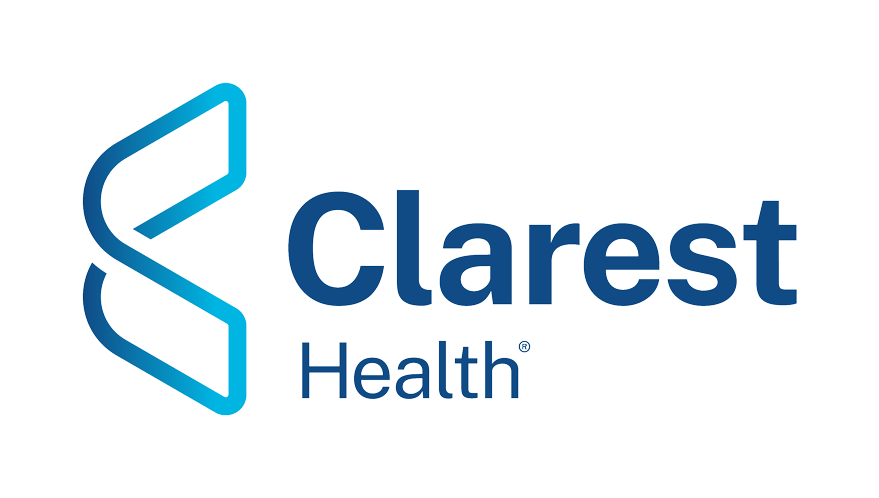Men’s Health Month: How to Manage Multiple Prescriptions Effectively
June is Men’s Health Month, making it the perfect time to address one of the most critical yet overlooked challenges facing men today: managing multiple medications safely. If you’re taking several prescriptions daily, you’re not alone. Polypharmacy, or taking five or more medications simultaneously, affects millions of men and significantly impacts health outcomes when not properly managed.
At Clarest Health, we understand that men taking multiple medications face unique challenges in maintaining their independence while staying healthy. This comprehensive guide explores proven strategies for safe Medication Management and highlights how proper support can transform your health journey.
The Growing Challenge of Polypharmacy in Men’s Health
Men’s relationship with healthcare has always been complex. Recent data shows that 55% of men report not receiving regular health screenings, often leading to delayed diagnoses and more complex treatment regimens when health issues are finally addressed.
The reality of multiple medication management is staggering. Polypharmacy among older adults has nearly doubled in just two decades: from 24% in 1999-2000 to over 40% by 2017-2020. For men, this polypharmacy challenge is compounded by several factors:
- Delayed medical intervention leading to multiple chronic conditions
- Higher rates of cardiovascular disease requiring complex treatment protocols
- Less frequent medication adherence monitoring
- Increased risk of dangerous drug interactions
Men managing multiple medications while trying to maintain active, independent lifestyles face significant hurdles, but with the right strategies and support systems, these challenges become entirely manageable.
Critical Men’s Health and Medication Statistics
Understanding the scope of medication management challenges helps put your situation in perspective:
- Cardiovascular disease remains the leading cause of death for men, often requiring multiple medications for management (CDC, 2024)
- Men have a higher prevalence of total and diagnosed diabetes (18.0% and 12.9%, respectively) compared with women (13.7% and 9.7%), frequently necessitating additional prescriptions alongside other chronic condition treatments
- Studies show that 37% of adults experience polypharmacy, with medication thresholds varying between 2 and 21 medications
- Men are four times more likely to commit suicide compared to women and live on average five years less than women
- 13.8% of men ages 18 and older are in fair or poor health
These statistics underscore why proper medication management isn’t just about organization, it’s about survival, independence, and quality of life.
6 Essential Strategies for Safe Multiple Medication Management
-
Master Preventive Care to Reduce Future Medications
The best medication management strategy starts with prevention. Common men’s health conditions like hypertension, diabetes, and high cholesterol often develop silently, leading to emergency interventions that require multiple medications.
Action Steps:
- Schedule annual comprehensive health screenings
- Monitor key indicators: blood pressure, cholesterol, blood sugar, and BMI
- Request medication reviews during every appointment to eliminate unnecessary prescriptions
- Address lifestyle factors before they require pharmaceutical intervention
-
Implement a Comprehensive Medication Management System
For men taking multiple medications, organization isn’t optional—it’s essential. Medication Errors, missed doses, and dangerous interactions become increasingly likely as prescription complexity grows.
Our ship-to-you service, CareFil Rx by Clarest Health, transforms chaotic medication routines into streamlined, safe systems:
- Pre-Sorted Medication Pouches: Each dose clearly labeled with medication names, dosages, and times to be taken
- Monthly Shipments: 30-day supply of prescribed medications shipped directly to you
- Clinical Pharmacist Oversight: Expert review of all prescriptions for interactions, duplications, and optimization opportunities
- Dedicated Care Coordination: Your personal CareFil team checks in with you monthly, manages your refills, communicates with your providers, and makes sure all prescriptions are up to date
Our comprehensive approach eliminates the stress and risk of managing complex medication schedules while ensuring optimal therapeutic outcomes.
-
Prioritize Heart-Healthy Lifestyle Choices
Since cardiovascular disease drives much of men’s polypharmacy, heart-healthy lifestyle choices can reduce medication burden over time. Regular exercise and proper nutrition work synergistically with medications to improve outcomes.
Evidence-Based Strategies:
- Cardiovascular Exercise: Walking, swimming, or cycling 150 minutes weekly
- Resistance Training: Maintain muscle mass and bone density
- Heart-Healthy Nutrition: Focus on lean proteins, whole grains, and healthy fats
Optimal Food Choices:
- Lean Proteins: Fish, chicken, legumes for muscle maintenance and satiety
- Whole Grains: Quinoa, brown rice for sustained energy and blood sugar control
- Healthy Fats: Avocados, nuts, olive oil for cardiovascular protection
These lifestyle modifications can enhance medication effectiveness while potentially reducing future prescription needs.
-
Address Mental Health in Your Medication Strategy
Mental health significantly impacts medication adherence and overall health outcomes. Men often underestimate how depression, anxiety, and stress affect their ability to manage complex medication regimens effectively.
Key Considerations:
- Mental health medications may interact with physical health prescriptions
- Depression reduces medication adherence rates significantly
- Stress management techniques can reduce the need for certain medications
- Social connections improve both mental health and medication compliance
Actionable Approaches:
- Include mental health professionals in your healthcare team
- Practice stress-reduction techniques like meditation or hobbies
- Maintain strong social connections through family, friends, or support groups
- Communicate openly with providers about mood changes or medication concerns
-
Maintain Cognitive Health to Support Medication Management
Cognitive decline can severely impact safe medication management. Staying mentally sharp isn’t just about quality of life, it’s essential for maintaining the ability to manage complex treatment regimens independently.
Brain-Healthy Activities:
- Continuous Learning: New skills, languages, or hobbies
- Mental Challenges: Puzzles, reading, strategy games
- Social Engagement: Regular interaction with friends and family
- Physical Exercise: Proven to support cognitive function
Regular cognitive stimulation helps maintain the mental clarity needed for safe, independent medication management.
-
Build a Comprehensive Healthcare Support Network
Effective multiple medication management requires a coordinated team approach. No single provider can oversee all aspects of complex polypharmacy safely.
Essential Team Members:
- Primary Care Physician: Overall health coordination and regular medication reviews
- Specialists: Condition-specific expertise for chronic diseases
- Pharmacy Partners: Clarest Health is your partner in managing multiple medications while aging in place
- Care Coordinators: Communication facilitation between providers
Clarest Health’s Role: We bridge the gaps in your healthcare team, ensuring seamless communication, medication optimization, and proactive management of your entire treatment regimen.
Frequently Asked Questions About Men’s Health and Multiple Medications
What is polypharmacy and why does it affect men differently? Polypharmacy refers to taking five or more medications simultaneously. Men often experience polypharmacy differently due to delayed healthcare seeking, higher rates of cardiovascular disease, and different medication adherence patterns compared to women.
How many medications is considered too many? While there’s no magic number, taking five or more medications daily significantly increases interaction risks. The focus should be on medication appropriateness and safety monitoring rather than total count.
What are the most dangerous medication interactions for men? Common dangerous interactions include blood thinners with pain medications, diabetes medications with heart medications, and blood pressure medications with supplements. Professional monitoring is essential.
How can I tell if my medications are working properly? Regular monitoring through lab work, symptom tracking, and provider communication helps determine medication effectiveness. Unexpected side effects or worsening symptoms may indicate needed adjustments.
Transform Your Health with Professional Medication Management
Managing multiple medications successfully requires more than good intentions; it demands professional systems, expert oversight, and comprehensive support. The stakes are simply too high for trial-and-error approaches.
At Clarest Health, we specialize in transforming complex medication regimens into manageable, safe routines that support your independence and health goals. Our evidence-based approach combines cutting-edge technology with personalized care to deliver measurable improvements in health outcomes.
Ready to take control of your medication management? Contact Clarest Health today to learn more. Discover how our comprehensive medication management solutions can simplify your routine, improve your health, and give you confidence in your care.
Medical Disclaimer: This information is for educational purposes only and should not replace professional medical advice. Always consult with your healthcare provider before making changes to your medication regimen or treatment plan. Individual health circumstances vary, and what works for one person may not be appropriate for another.
Sources
- CDC National Center for Health Statistics. (2022). Interactive Summary Health Statistics for Adults: National Health Interview Survey.
- CDC. (2024). Prevalence of Total, Diagnosed, and Undiagnosed Diabetes. Data Brief No. 516.
- CDC. (2024). Heart Disease Facts. National Center for Chronic Disease Prevention and Health Promotion.
- CDC. (2024). National Diabetes Statistics Report.
- Cleveland Clinic. (2022). Men’s Health Survey Data.
- Johns Hopkins Medicine. (2024). Polypharmacy in Adults 60 and Older.
- JAMA Network. (2024). Study: Polypharmacy Nearly Doubled in 20 Years Among Older Adults in US.
- BMC Geriatrics. (2022). Prevalence and factors associated with polypharmacy: a systematic review and meta-analysis.
- Mental Health America. (2024). Mental Health for Men Infographic.
- Shortlister Health Statistics. (2025). 40+ Men’s Health Statistics.
- World Health Organization. (2003). Adherence to Long-term Therapies: Evidence for Action.

